#MeToo movement is one year old and growing in power
One year on, the #MeToo movement has the potential to be as influential as women’s suffrage.
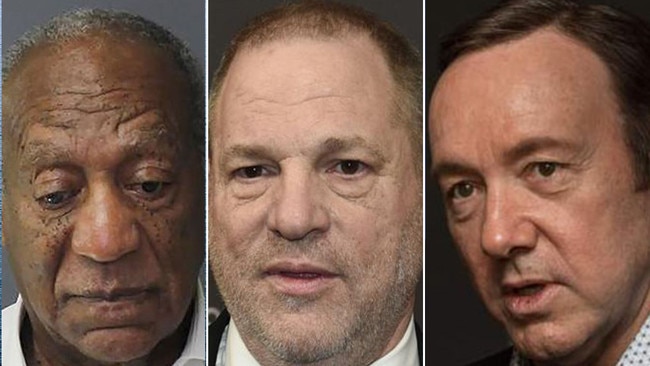
A year ago Harvey Weinstein was exposed as a sexual predator.
Until then his treatment of women was an open secret among some of the film industry’s publicists, lawyers and journalists. Weinstein had been protected by an unspoken assumption that in some situations powerful men can set their own rules.
During the past year that assumption has unravelled with welcome speed. In every walk of life powerful men have been forced out, and not just in the US. Now Brett Kavanaugh may be denied a seat on America’s highest court following accusations he committed sexual assaults decades ago as a student. Kavanaugh has denied the allegations.
What began on the casting couch has made its way to the US Supreme Court bench. That is progress. Yet the fate of the #MeToo movement still hangs in the balance in the US, where it began and where it has had the greatest effect.
The good news is that the appetite for change is profound; the bad news is that men’s predation of women risks becoming yet one more battlefield in America’s all-consuming culture wars.
Striking a balance
Thanks to #MeToo, women’s testimony is being taken more seriously at last. For too long, when a woman spoke out against a man, the suspicion was turned back on her. In 1991 when Anita Hill accused Clarence Thomas, now a Supreme Court judge, of sexual harassment, his defenders smeared her as “a little bit nutty and a little bit slutty”. The machine backing Kavanaugh is equally determined. However, it has refrained from questioning the sanity or morals of his main accuser, California professor Christine Blasey Ford. In 2018 voters would find that unacceptable.
Abuse by men is being taken more seriously, too. Weinstein allegedly committed dozens of sexual assaults, including rape. The contrast between his brutality and his impunity shook the world out of its complacency. Last week Bill Cosby, once the highest paid US actor, was jailed for being a sexually violent predator. But women in colleges and workplaces all over the US are harmed by abuse that falls short of rape. Thanks to #MeToo, this is likelier to be punished. Most defences of Kavanaugh have focused on his presumed innocence; 30 years ago they would have insisted that the drunken fumblings of a 17-year-old were a fuss about nothing.
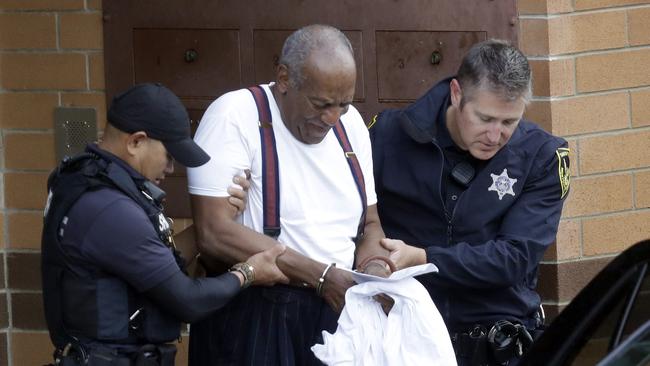
These shifts reflect a broad social change. Before the elections of 2016, 920 women sought the advice of EMILY’s List, which promotes the candidacy of pro-choice Democratic women. Since Donald Trump was elected President, it has been contacted by 42,000. Companies are keen for their staff and customers to think they buy into #MeToo.
One worry is that there may be a gap between corporate rhetoric and reality. Another is uncertainty about what counts as proof. That is largely because evidence of an instance of abuse often consists of something that happened behind a closed door, sometimes long ago.
Striking a balance between accuser and accused is hard. Ford has the right to be heard, yet so does Kavanaugh. His reputation is at stake, but so is the Supreme Court’s. In weighing these competing claims, the burden of proof must be reasonable. Kavanaugh is not facing a trial that could cost him his liberty but interviewing for a job. The standard of proof should be correspondingly lower. Neither the court nor natural justice is served by haste.
Also a problem is the grey zone shared by men who have not been convicted in court but are judged guilty by parts of society. Just now every case is freighted with precedent-setting significance, perhaps because attitudes are in flux. Last month Ian Buruma was forced out as editor of The New York Review of Books after publishing an essay by an alleged abuser that failed to acknowledge the harm he had done. Buruma did not deserve to go and, were values more settled, his critics might have been content with an angry letter to the editor. #MeToo needs a path towards atonement or absolution.
And #MeToo has become bound up with partisanship. According to polling this year by Pew, 39 per cent of Republican women think it is a problem that men get away with sexual harassment and assault, compared with 66 per cent of Democratic women; 21 per cent of Republican men think it is a problem that women are not believed, compared with 56 per cent of Democratic men. Kavanaugh, however his nomination turns out, is likely to deepen that divide — if only because Republican zeal to rush his confirmation is further evidence that the party puts power first. That was clear when it backed Trump, despite his boasts of forcing himself on women and allegations of sexual misconduct by at least 19 accusers. Under president Bill Clinton, who also was accused of sexual assault, the Democrats were not so different. They now offer less protection.
If #MeToo in the US becomes a Democrats-only movement, it will be set back. Some men will excuse their behaviour on the ground that it is hysteria whipped up by the Left to get at Republicans. Those questions about proof, fairness and rehabilitation will become even harder to resolve.
Think ahead
It takes a decade or more for patterns of social behaviour to change. #MeToo is just one year old. It is not about sex so much as about power — how power is distributed and how people are held accountable when power is abused. Inevitably #MeToo will morph into discussions about the absence of senior women from companies and gaps in average earnings between male and female workers. One protection against abuse is for junior women to work in an environment that other women help create and sustain.
Conservatives often lament the role Hollywood plays in undermining morality. With #MeToo, Tinseltown inadvertently has fostered a movement for equality. It could turn out to be the most powerful force for a fairer settlement between men and women since women’s suffrage.
Business and #MeToo
“I didn’t wait for a pay cheque. I didn’t tell anyone. I was scared, ashamed and just ran,” is how Daniela Contreras recalls sexual harassment — as she now knows to call it — by her employer when working as a nanny in her teens. Twenty years later she feels able to say “This happened to me”, and works with the National Domestic Workers Alliance in New York to ensure others can do so sooner. During the past year she has seen a big rise in women phoning, almost daily, for legal advice. #MeToo catalysed this rise, she says. “The hashtag helped start the conversation by writing it, saying it and sharing it: ‘This happened to me.’ ”
In response to the Weinstein scandal last year, actress Alyssa Milano invited anyone who had been harassed or assaulted to tweet #MeToo. The hashtag has been shared more than 15 million times. Victims in workplaces of all sorts, from S&P 500 companies to small and medium-sized firms to start-ups, have come forward in unprecedented numbers to share their experiences.
Many powerful men have been forced out. One of the most-praised bosses in media, CBS chief executive Les Moonves, was forced to leave last month following accusations of sexual harassment (which he denies). A handful, including Weinstein, await trial.
Firms are under growing pressure to change how women are treated. Staff at McDonald’s, one of several firms being sued by workers, protested last month against a culture of harassment, replacing the “M” on #MeToo banners with the golden arches.
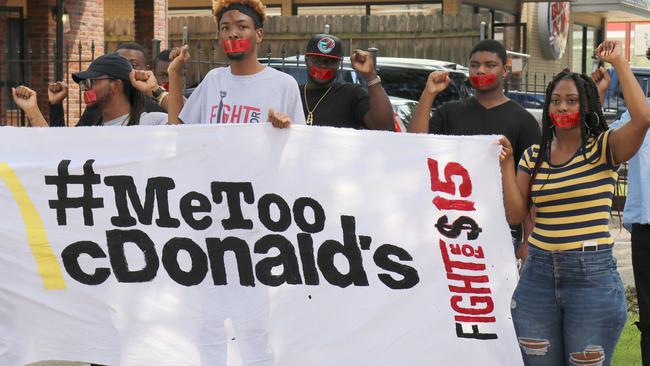
Some people worry that the movement has gone too far, warning of a “witch hunt”, “trial by Twitter” and the end of innocent office romance. Others fret about a backlash for women at work, where senior male executives may no longer want to mentor them or travel or dine with them alone (a code of conduct sometimes referred to as “the Pence rule”).
Some responses have felt kneejerk: Netflix was mocked when in training it reportedly suggested a rule against people gazing into each other’s eyes for more than five seconds on film sets. Yet the occasional over-reaction may be part of the messy process of changing norms across society, business and politics. Although most of those over 65 say it has become harder for men to interact professionally with women following #MeToo, a minority of those under 30 say the same. The real question is not whether the pendulum has swung too far but whether it has swung far enough. The answer to that is clearly no.
Most of those accused of harassment or assault have faced the court of public opinion, not the law itself. In the US, the Equal Employment Opportunity Commission has noted in preliminary findings a modest 3 per cent uptick in sexual-harassment complaints filed by employees this year.
Their day in court
This is in part because few victims report abuse, let alone press charges. Those who do rarely get their complaints heard in court. In the US, the Time’s Up movement set up a $US21 million ($29m) legal defence fund to try to change this. Since January it has had 3500 applications, two-thirds of them from low-income workers.
Many US states are reviewing their laws. Washington now bars employers from mandatory nondisclosure agreements for employees, which stop workers from speaking out publicly about their experiences. Several are exploring extending or ending statutes of limitations, spurred on by revelations of child abuse in the Catholic Church in the US. California is in the process of passing several “#MeToo bills”, including banning forced-arbitration clauses in contracts, which require workers to waive the right to take an employer to court.
Meanwhile, the number of shareholder class-action lawsuits based on gender claims has risen, says Kathleen McKenna, an employment lawyer at Proskauer in New York. Last November, 21st Century Fox reached a $US90m settlement with shareholders over losses related to two harassment scandals. Employees are taking firms to court, too — including Google, where a plaintiff cites a “bro culture” that allegedly allowed harassment to go unpunished, and Ford, which faces a class action by workers claiming they were sexually harassed and their complaints obstructed. Yet the uptick in workers’ class actions has been modest, partly because in May the Supreme Court upheld employers’ rights to block employees from bringing them.
What the law can do in any case is only part of the picture. Many, if not most, of the accounts of harassment that have emerged in the past year point less to a failure of legislators than to one on the part of employers. Big US firms are keen to be seen to “do something”: the number of public declarations about zero tolerance of harassment has gone up. Yet whether their actions are meaningful, or whether they are still dodging deeper problems around power imbalances in the workplace, is very much in question.
Customers, investors, boards, employees, stock analysts and even insurers increasingly ask for information on what a company does for women, including the protection it affords against harassment. Equileap, which ranks firms on gender-equality criteria, now includes sexual-harassment policies. It is seeing strong demand for such data. That is partly because the headline costs of a scandal are clear: shares of several big firms have fallen sharply after executive departures. But less clear costs, such as to productivity, turnover and reputation, are also becoming harder to ignore.
In a Deloitte survey, business leaders cited the #MeToo movement as the news story that had most affected “inclusive growth initiatives”. “As with the first cyber-risk incidents, #MeToo is helping make boards realise ‘this could happen to us’,” says Jane Stevenson from consultancy Korn Ferry. Even so, few firms want to talk publicly about what they are doing inside the organisation. Those that do often have reputations sorely in need of burnishing.
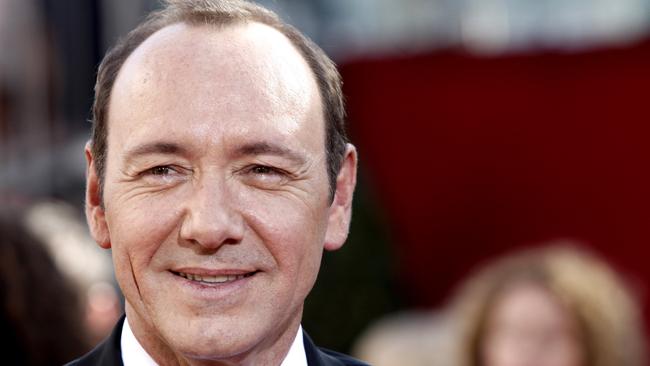
Several employers have tried to improve internal procedures for reporting harassment. Victims fear retaliation from their harasser and their employer (particularly when they are the same person). Independent, anonymous helplines overcome conflicts of interest and several report growing demand. Non-profit Callisto, based in San Francisco, has developed software that allows employees to enter a complaint that will be filed only if a second complainant accuses the same person. But less than a third of Americans surveyed in May said their employer had done anything new to deal with sexual harassment following #MeToo, the American Psychological Association says.
Listening to women
Some of the most promising solutions to the problem of harassment come from workers in low-wage sectors, who were grappling with this issue well before it became a hot topic. Domestic servants and farm workers face some of the highest levels of harassment and some of the flimsiest protections.
Decades of work by a Florida farmworker-advocacy body, the Coalition of Immokalee Workers, has seen its practices copied in other states. As well as training workers, the organisation persuades tomato growers to sign up to a Fair Food program, binding them to strict conduct rules. In exchange growers can sell to retailers such as Whole Foods or Taco Bell, which will buy only from Fair Food farms. During the 2016-17 growing season, 70 per cent of farms reported no sexual harassment at all.
Nearly six in 10 hotel housekeepers have been sexually harassed or assaulted and 65 per cent of casino cocktail-servers have been groped, grabbed or touched in an unwelcome way, according to UNITE — HERE Local 1, a Chicago union. Its campaign, “Hands Off Pants On”, successfully lobbied for a citywide ordinance that obliges all hotels to issue housekeepers with panic buttons. The movement undoubtedly played a role in the recent decision by several chains, including the Hilton and Marriott groups, to start issuing such buttons nationwide.
But panic buttons and reporting systems still put the onus on victims rather than abusers. The bigger step is to prevent harassment in the first place. In most companies this requires deeper cultural change.
Lots of companies have done the minimum necessary to reassure compliance departments. Announcing a “zero-tolerance” policy sounds tough but is often empty rhetoric; it can even be counter-productive by putting victims off reporting if they know that a sacking is bound to result.
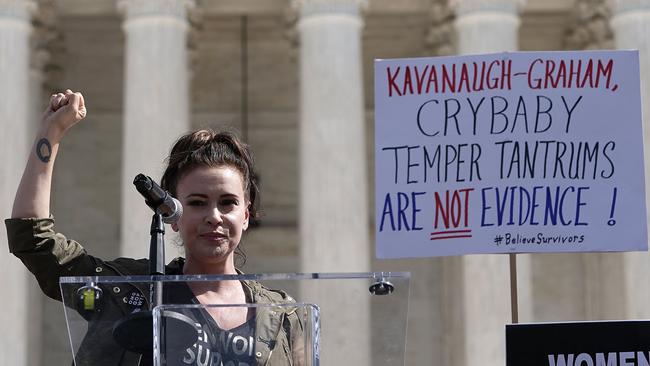
Questions about culture change loom over Nike, which fired 11 top managers over harassment and discrimination this year. It has at least issued a public apology and taken some steps — introducing an anonymous hotline and hiring a chief diversity officer. Four former executives are suing the sportswear company for alleged gender discrimination in pay and promotion.
Few firms have got to grips with the fact harassment is often a symptom of bigger, subtler problems: unequal access to power and unaccountable cultures.
“All the training, policies and punishments won’t have an impact on harassment if you don’t address power differentials, pay equity and gender equality in organisations,” says David Ballard from the APA. In its survey, employees for organisations that had women in senior leadership said they were likelier to report sexual harassment at work (56 per cent versus 39 per cent) or to confront a co-worker engaging in it (53 per cent versus 34 per cent) than those without. Several studies found harassment was more prevalent where men outnumbered women and where supervisors were mostly male.
A survey carried out by Pew last week found most Americans considered men and women equally capable of being leaders in politics and business. Yet in the time that #MeToo has been trending, the number of female Fortune 500 chief executives has fallen. Progress in closing the pay gap has stalled in several rich countries. Until the barriers that stop women from having an equal stab at reaching the top are cleared away, #MeToo will struggle to succeed.
The Economist
